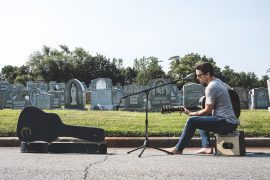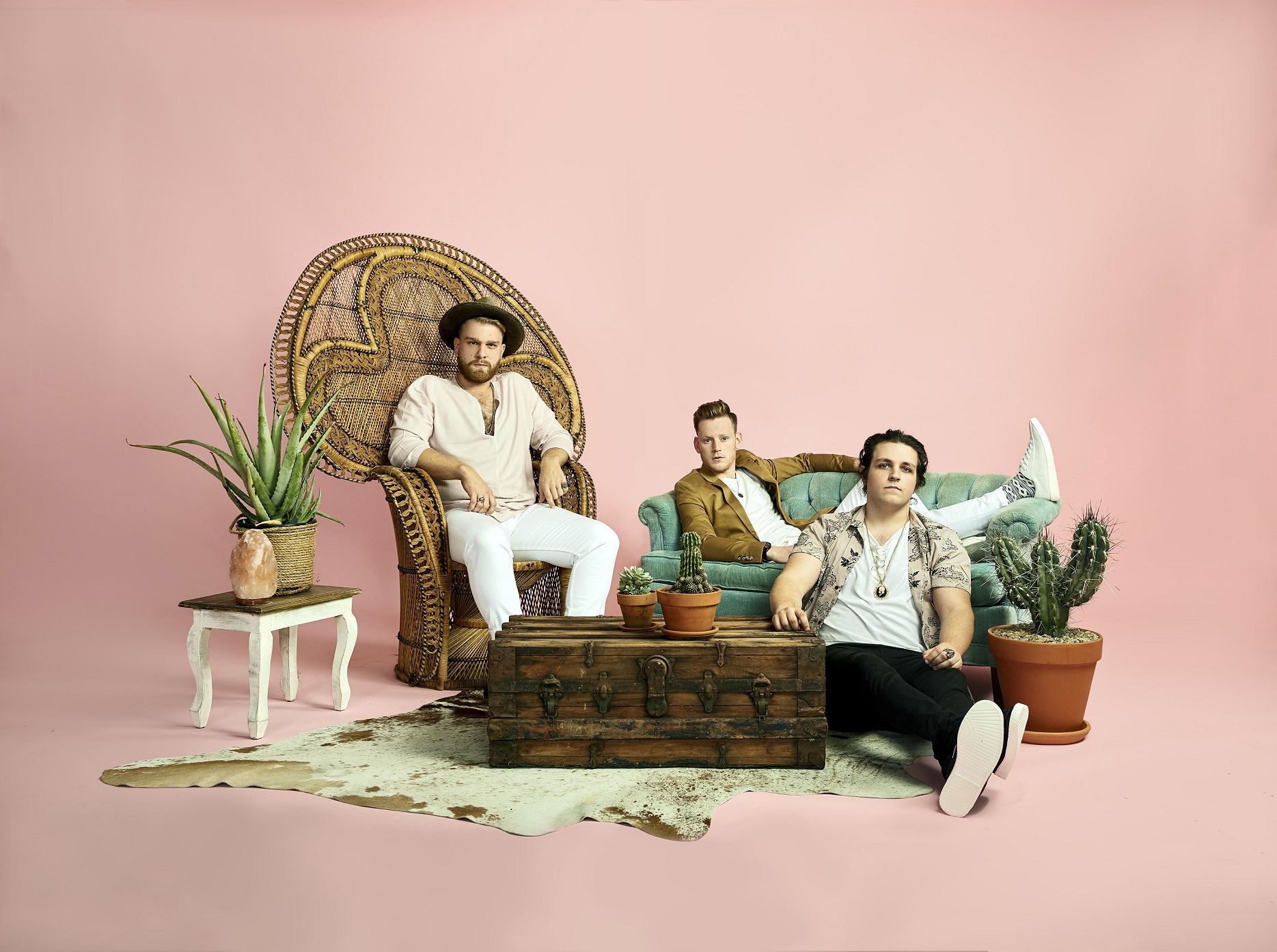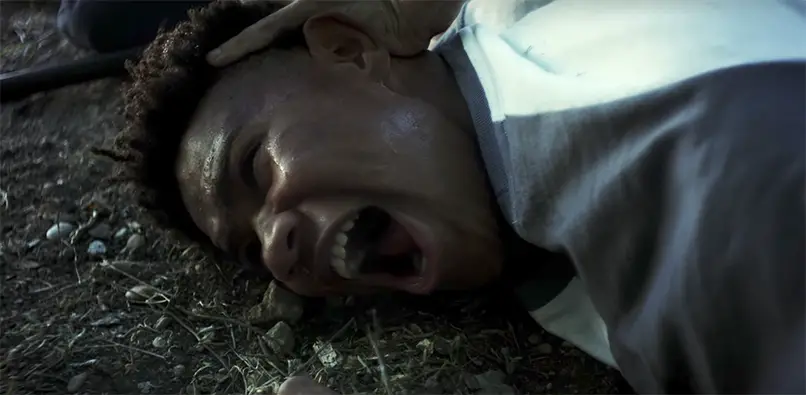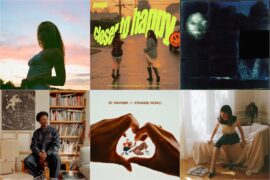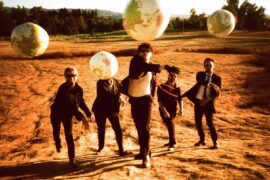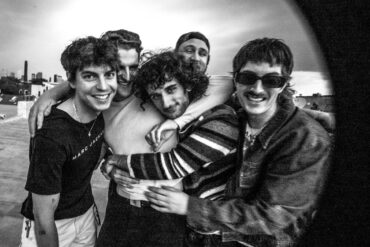Goo Goo Dolls’ Robby Takac reflects on A Boy Named Goo’s 30th anniversary, the band’s rise to fame in the mid-‘90s with the unexpected success of “Name,” and why they are still as passionate and determined as ever.
Stream: ‘A Boy Named Goo’ – Goo Goo Dolls
Few bands have navigated the ever-changing tides of rock music quite like Goo Goo Dolls.
From their scrappy punk beginnings in Buffalo’s underground scene to their reign as multi-platinum hitmakers, the band – led by John Rzeznik and Robby Takac – has built a legacy spanning nearly four decades. Their music has defined generations, soundtracking everything from late-’90s heartbreak to stadium singalongs, yet they remain just as restless and creatively ambitious today as they were at their start.
This year, the band is celebrating the 30th anniversary of A Boy Named Goo, the album that changed everything. While many remember it as the record that produced “Name,” the song that catapulted Goo Goo Dolls to mainstream success, Takac sees it as something more – a pivotal turning point in the band’s sonic evolution. As they prepare to release a deluxe edition of the album and embark on another international tour, Takac reflects on the past while keeping his eyes set firmly on the future.
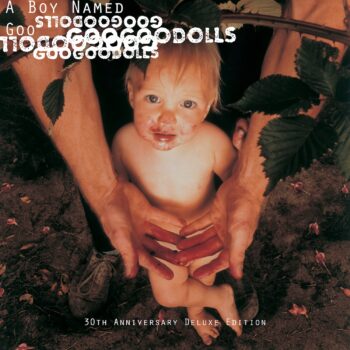
Speaking with Atwood Magazine, the Goo Goo Dolls co-founder opens up about the making of A Boy Named Goo, the band’s ongoing creative journey, and the realities of balancing nostalgia with the hunger to create something new. From revisiting long-lost recordings to preparing for their next album, Takac proves that while anniversaries offer a chance to look back, Goo Goo Dolls are still charging full speed ahead.
“We don’t really sit around talking about our old records all that much; we’re always thinking about what’s coming next,” he tells Atwood Magazine.
Case in point: While this 30th Anniversary celebration is on the immediate horizon, Goo Goo Dolls are already hard at work on their 15th studio album – the follow-up to 2022’s Chaos in Bloom.
Or as he says, “We’re putting some chords together again and singing some melodies and just making it happen again.”
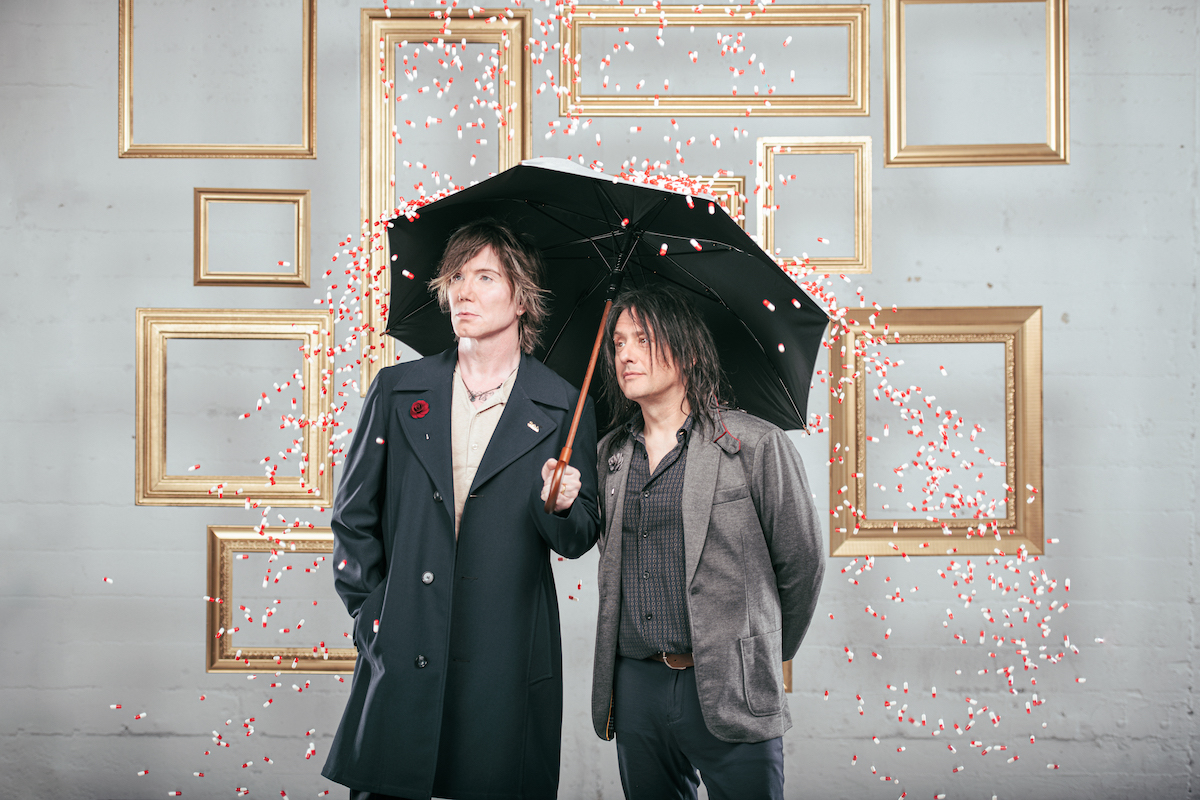
Goo Goo Dolls’ A Boy Named Goo (30th Anniversary Deluxe Edition) is out on digital and physical formats March 14th, and features the original track listing as well as various B-Sides and multiple live recordings, including the full set from the band’s 1996 show at The Aladdin Theatre, Las Vegas – offering fans a deeper dive into the era that shaped the band’s trajectory.
Bridging their raw, punk-infused roots with the melodic, emotionally charged songwriting that would define their future, A Boy Named Goo remains an electric standout in Goo Goo Dolls’ catalog, its mix of grit and melody as compelling as ever. Its impact is undeniable; hits like “Name” and “Long Way Down” continuing to resonate, while deeper cuts like “Flat Top” and “Ain’t That Unusual” (a Takac favorite) reveal the album’s lasting depth.
“We still wrote this record sitting in a cold, wet garage,” Takac grins, looking back. “There was no guarantee of anything when we were doing this record; the only guarantee was that we were gonna get a shot again.”
Thirty years later, A Boy Named Goo now stands as a testament to the band’s relentless evolution, proving that reinvention and staying power can go hand in hand.
— —
:: stream/purchase A Boy Named Goo here ::
:: connect with Goo Goo Dolls here ::
— —
A CONVERSATION WITH GOO GOO DOLLS
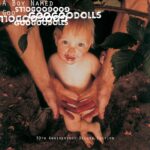
Atwood Magazine: Robby, thanks so much for your time today! For starters, how has the beginning of your 2025 been?
Robby Takac: Oh, it’s been all right, you know, been trying to stay away from the news as much as I can, and it’s a, my heart can’t take it, so. But, yeah, but we’ve been working on a ton of songs. I’ve been trying to get a record out by the summer, probably after we come and visit Australia and Africa too. We’re going to South Africa to do some shows. Yeah. And what else? Been watching my daughter play some basketball games, you know, man. Yeah, just making it happen here. You know, we got a lot of touring coming up, so trying to spend a little time at home while I’m doing all sorts of other stuff.
I was so excited when I saw the announcement about the 30th anniversary for A Boy Named Goo. How long has this anniversary album been in the mix, and why choose now to celebrate this record?
Robby Takac: Yeah, you know, I think… I mean, it’s always something to be able to go, hey, man, holy cow, it’s been a while, like, we don’t really sit around talking about our old records all that much – we’re always thinking about what’s coming next. And so I think this gives us the opportunity to do that. And my manager tends to go through his desk every once in a while and tends to find some pretty cool little gems laying around. And we’ve been finding some things in the vaults and stuff as we’ve been going through stuff, and so it sort of presents itself, you know, presents a good opportunity for us, especially like for a transformational era like that for a band like us, you know, we had an awful lot of documentation audio wise at that time. So we included an awful lot of it on the deluxe edition of the re-release.
That entire era, the early ‘90s, were such a major turning point for Goo Goo Dolls.
Robby Takac: Yeah, I think a lot of bands… Well, I think just a lot of bands in general in our genre at that time were pretty shocked that we were, you know, that people were paying attention. We had been traveling around for a lot of years and people weren’t. I mean, some people were, but in general, people weren’t. So at that particular time, A Boy Named Goo came out and we had been through the mill of doing all that needs to be done, or excuse me, needed to be done back in that time to get us on the radio, we went through all that. And so when A Boy Named Goo came out, we sort of knew what was coming because we had done it in a very light version on Superstar Car Wash.
But when A Boy Named Goo came out, “Name” hit, you know, we were on five, six formats at a time in the United States. Yeah. So, we were leaving shows at 2 o’clock in the morning, driving five hours, pulling into the next city into a local record promoter, sitting in the parking lot of the hotel ready to take us off to do five, six more radio stations the next day. And that was a really long time for us. We did that for about a year and a half, pretty much straight. Like we barely left the US because we had so much opportunity there as far as radio and doing shows and that kind of stuff. So it’s pretty quick once that record came out.
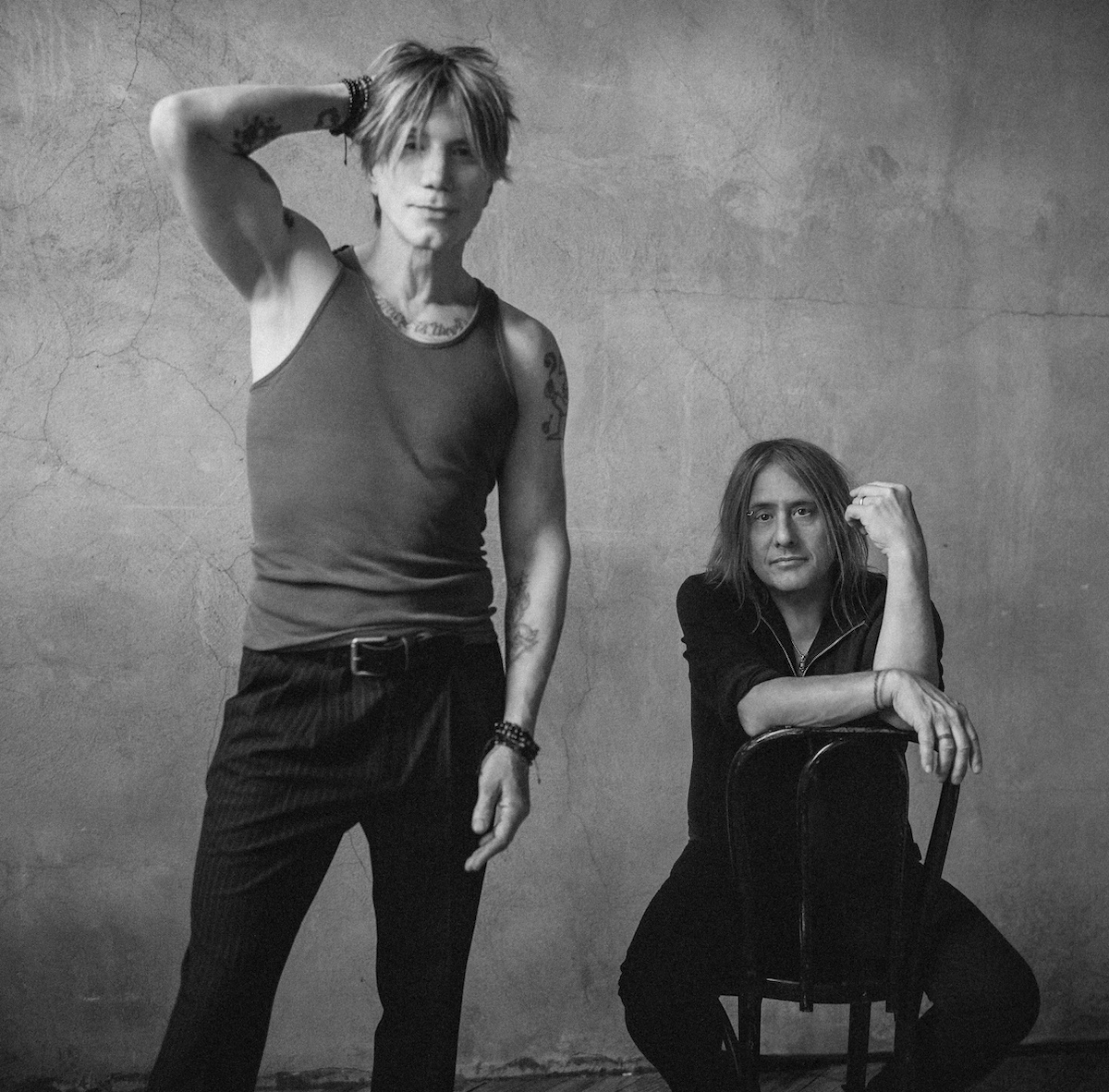
It's quick but then you look back and you think about how much you did in just one year's time. Of course, I feel like I can't talk about A Boy Named Goo without at least mentioning Superstar Car Wash. That's one of my all-time favorite albums of yours, and for good reason, but the record doesn't get its due – it gets lost in the story of your band.
Robby Takac: Yeah, I agree.
And yet I think that that one is really the ‘turning point,’ if we say it like that. Where does Superstar Car Wash fit, for you?
Robby Takac: Well, that was the first record that… Like, people stepped in on that record, you know? Like, there were people who were interested in what was going on in our career at that point, like, we had put out ‘Hold Me Up’ and it had a couple songs on it that people really liked and they got on the college radio circuit. They were starting to pay attention, you know. So we had largely worked with a guy named Armand Petri here in Buffalo and a guy named Mike Sak that owned the studio that I still own today, actually. And they helped us an awful lot through that time. And, but we had put out a song called “There You Are,, which was on ‘Hold Me up’. And we got a lot of, like, 120 Minutes, like, that was a radio format here in the States that played on MTV at night. And it broke a lot of the bands that kind of, you know, I would say 30% of the bands that you saw in 120 Minutes ended up on MTV.
And so they played “There You Are” and so all of a sudden everybody was paying attention, and Warner Brothers picked us up. And so we ended up doing that record with a guy named Gavin MacKillop, who had worked with bands like Toad the Wet Sprocket as a producer. He had worked with bands like Toad the Wet Sprocket and Straight Jacket Fits and, like, trying to think of, The Church, you know, bands like that, like a little bit different than what we did. But we brought him in and recorded it in a big warehouse in Toronto, between a warehouse in Toronto and our studio here in Buffalo. And that was the first time we were able to make a record with resources, you know?
Like, we had a studio, but we had resources this time. You know, we could buy plane flights, we could go mix the record in LA, we could go up to Canada and spend some times in hotels working at a studio that was a little… That had a little bit more than the studio that we were used to working in and make a record. And I don’t know if we achieved anything by doing all that, you know, I mean, but that’s what we were always trying. So I think ‘Superstar’ provided us with that, like there were outsiders for the first time in our mix, and I think that was the big lesson for that record.
This album is a transition period for you where you're tightening everything up and it's starting to get a little ‘cleaner.’ I think A Boy Named Goo is where we really started to hear the identity that you've now maintained in some shape or form.
Robby Takac: We had done a song on Superstar Car Wash called “We Are the Normal” that Paul Westerberg wrote some parts of melodies and lyrics and stuff through the mail, actually, Us mail with stamps, you know? We had done some other songs that were kind of acoustic songs in the past. We had a song called “James Dean” and I forget which record, maybe first, second record, one of the two. And we had another one called “7th of Last Month,” which was kind of acoustic a little bit.
But “We Are the Normal” was really the first time we actually tried something like that, and that ended up being the one that people kind of paid attention to on that record, you know. And I’m not sure in retrospect if it is, like, in retrospect, I think there’s kind of some other songs that have sort of surpassed that one as far as fan popularity goes.
But that sort of led us down the road, where we were in the studio with a guy playing accordion and my friend Mary Ramsey playing viola. And we were like, okay, this is kind of something different, you know. I don’t know this for sure, but I think without that bridge, John probably never would have got to “Name” – I think we had a bridge that made it to that. That’s probably what that was. So Superstar was important in that context, too.
Obviously, that leads us right into the album du jour. I cannot believe it's been 30 years. What is the story of A Boy Named Goo for the audience of 2025?
Robby Takac: Well, that was the last record that we did with George. That was our old drummer. He, you know, the band was rapidly morphing into something that was a little different than what it was when we started, you know, our goals, our personal goals were all a little different at that point. And once again, people were really paying attention this time, because I think Lou Giordano came in to produce that record, and we thought Lou was a much better pick because Lou had worked with like… Well, actually, Lou had done a Sugar record. That’s all we really cared about, but he had also worked with the Smithereens and a bunch of other, like, Boston Fort Apache kind of bands and stuff.
And we felt like it was a little bit more in our wheelhouse, you know, where he was was a little bit more in our wheelhouse than Gavin. So, yeah, we went out to a little farm, like a converted dairy farm out in Suffern, New York, like, close to Woodstock and stayed out there for a couple months and, yeah, just made a record, man, you know, spent an awful lot of time there just figuring out how to make a record sound the way we wanted it to sound and Lou’s like a madman, like a scientific… He’s like an MIT guy, like, measuring weird… Like Pro Tools wasn’t really a thing yet.
It existed, but we only had, like, two channels of it or four channels of it, I think. So we couldn’t really use it the way that we needed to use, you know, that you would use it today. So we were figuring out edits… Excuse me. We, that is the French we, this is Lou was looking at the waveforms, finding the takes. He put all the takes into Pro Tools. He looked at all… He was looking at the waveforms against the charts in maybe, like, kick, snare, overhead and hat or something like that.
He would look on the Pro Tools and measure on the Pro Tools and with an actual slide rule, figure out what parts of what take he needed and where the edits needed to be and stuff. Man, it was one of the craziest things I saw. Anyway, but it was quite a process making that record. And it took probably much, much, much longer than it needed to. And I think that that was part of the reason why we ended up parting ways with George. You know, I think that was the other 50%. I think some of it was creative, but I think at the same time, we found ourselves having to jump over a lot of mountains to get to the end at that point.
And really, quite honestly, these days it’s much easier. But at that point, with everything combined, it was time to move on. So when we were finished making that record and when that record came out, we had done, I think the first single was a song called “Only One” on that record. It was cool. We did this kind of like, super gritty video. Like, we were on this fake desert island and playing, and they were throwing sand at us and, you know. It was just silly, but it was kind of fun, and it was sort of what we expected in our world.
And then the next single was supposed to be a song called “Flat Top.” So we were doing a video for “Flat Top” and we were all set up and the video exists, you can see it right now, but sort of got eclipsed because as we, literally, as we were in the studio recording the video for that song, someone from the label came running in saying, Kevin Weatherly from KROQ just added “Name,” you know, and we’re like, oh, man, what do we do? Do we stop right now or do we finish this video?
So it wasn't even a single?
Robby Takac: “Name” wasn’t even a single, no. He just added… His wife liked the song and she added it. So we finished the video, but, like, literally three days later, we’re back, like, in doing another video for “Name” and, yeah, and then, at that point, like, Kevin at that point was kind of a kingmaker, you know, and so he played a song and, not just in the United States, man, like around the world, people would play stuff. So we got play all over the place on that song. And I think the only curse with that really was that a lot of like, middle of the road kind of like a double contemporary type stations played “Name” because it was kind of like a ballad. And so we would show up in our rickety old bus and come out and try to peel their faces off for an hour and then play “Name” for ’em and get out of there, you know. And like, it was an uncomfortable pair of shoes to wear for…
Most of their repertoire was hard rock, was what you would call hard rock and...
Robby Takac: Yeah. Exactly. It was never a problem, but it was something that we had to deal with because definitely people were shocked, you know. Like, yeah, shocked.
I don't know who his wife was, but I hope she got a fruit basket at some point in time.
Robby Takac: Yeah, well, I’m sure, if they’re still together, I’m sure she’s got a wonderful life. And if they’re not together, I’m sure she’s super rich.
A few years ago, I asked John how he felt the album has held up over the years, and his response was he thought the song “Name” has held up over the years. Do you agree with him that it's really “Name” that makes that album what it is?
Robby Takac: I don’t know, I think John and I look at the world in much different ways. You know, to me, I think our first record’s super badass. You know, he can’t even stand to talk about it, so, it’s like looking at old photographs, man, you know? Like, are they all beautiful? No, but it’s all something, you know, that means something to you. And I can, especially myself, can… I don’t sit around listening to our records, but I’ll defend our first record until I got a bloody lip, you know?
For what it's worth, I disagreed with him. I get it, I dive deeper than the average listener, but I think the entire record stands on its own, and from “Eyes Wide Open” to “Long Way Down,” it's a great example of a band transitioning from a punk and hard rock sound to something more mainstream, and yet it has both of those in abundance. I think that's so fun, to have that energy of a punk band, but to be understanding the consumerist nature of music.
Robby Takac: No, I understand it. I get it, I get it. Yeah. Well, you know, those are the things that the human ear are drawn to, you know.
So take out “Name” for a second, what are your favorite parts of this album? What are your favorite songs and personal highlights on this record?
Robby Takac: “Long Way Down,” that’s a great tune. Love that song. I remember, yeah, I can remember, like, the second John showed me the chorus to that song. You know, we had been working on it for a long time. We were working on the record in… Where were we? In Toronto again, we were in Metalworks Studios, and he sang me that bridge, had me sing the chorus part to him. I think that’s a great song. I’ve heard, like, punk rock bands cover that song, like pop punk bands. I’ve heard people play that song acoustically, even, you know, like, singer, songwriter kids play it. Basically love that song, man, that’s a good one. “Ain’t That Unusual” that’s a great song. Love that song. That was in the Angus movie. That was really cool.
That was one of the first songs we had in a film, that was exciting. “Slave Girl,” that’s a cover by a band called Lime Spiders. And one time I was in, the first time we went to Australia, Mick Blood, who was the singer from Lime Spiders, came with, like, a stack of records. And he’s like, man, he’s like, we didn’t even know you covered that song. And one day it’s like, I got this check in my mailbox, you know, and I’m like, what the f*? Because that record sold millions of records, you know, and so it was really fun to meet him. I had never met him before. That song was… There was a cassette that was going around here in Buffalo that there was a guy, local guy here that used to make cassettes and everybody used to copy him. And he had a, it was like a punk rock tape.
And there was like a segment of, like, Australian punk rock bands on there, like Celibate Rifles and Lime Spiders and a couple other bands. And I remember the Moving Targets were on there, a few other bands. I’m trying to think of some of the other bands, but anyway. But we always loved that song, so we would do it at gigs, you know, we’d do it at shows. So that ended up on the record just because we had done it a lot live, you know, and that never really happens. Like, it’s usually the other way, you know, but yeah, so that’s really cool. “Disconnected,” too. “Disconnected” is a song by a Buffalo band that was around in the late ’70s called The Enemies. And their singer’s still kicking around here now. I see him every once in a while kind of around town. But same thing with those guys, they thank me every once in a while.
It sounds like you really have a lot of great memories associated with A Boy Named Goo.
Robby Takac: Oh, I do, man. I mean, like, I… That was a life changing time for us, so I would definitely say that there was some major personal changes going on in our lives, you know, that came along with all these songs. So, there’s a lot of, you know, a lot that we do tends to be autobiographical and so, like I said, all these albums, you know, from the very first one to the very last one carry a lot of ourselves in them. So, yeah, I would think you’re right.
Tell me about the album cover; it’s a boy covered in goo?
Robby Takac: No, actually, a friend of ours had a tattoo on his chest that said Goo Goo Dolls. If you look at the original album or the original CD on the… It depends where it is, depending on what release it is. But in the picture, there’s a picture of a guy’s belly and it just says Goo Goo Dolls across the top of his belly. And that was the original cover for that album, was gonna be him standing there with these like aviator goggles on and this Goo Dolls across his chest. And it was just gonna say ‘A Boy Named Goo’. And of course, a play on Johnny Cash, “A Boy Named Sue,” right?
And, but after we looked at it, we were like, maybe this isn’t going to work. So we ended up using the cover that we used, which ended up getting us in all sorts of trouble because we put it out and Walmart ended up like banning it from the store because they thought the kid was like beat up, thought the kid had blood all over his face and it was… Right? You know, you got to remember who comes up with this stuff, right? You know? And, yeah, so they took it out of the store and then a couple other chains dropped it. And I think the Times wrote a piece about it, New York Times wrote a piece about it and…
Hey, no news is bad news!
Robby Takac: Yeah, yeah, exactly. So, yeah, I know. Again, the best press we ever got was when we got in a plane crash, you know? Like, that’s the most press we ever got in one day. Anyway, so, yeah, no, I mean, it’s a really fun record, man. And we still wrote this record sitting in a cold, wet garage, you know? There was no guarantee of anything when we were doing this record; the only guarantee was that we were gonna get a shot again, that was the only guarantee. But I think Lou did a pretty great job with it.
Does your experience with the anniversary re-release this time around mean we're gonna get a big 30th for the next album as well?
Robby Takac: We did a tour and stuff for Dizzy on the 25th anniversary, or 20th anniversary, maybe it was. It hasn’t been 10 years. Who knows? That was cool, but I don’t know, man. It’s cool to play a whole album. It’s for the fans and stuff, I guess it’s cool. But quite honestly, we got so many songs people want to hear. It t sort of feels like, what are we doing playing these songs? That’s sort of what I felt like at the end of that tour. I’m like, oh, I just wasted half the set playing songs people probably didn’t want to hear or like, we had to skip seven or seven good ones, you know, I don’t know, I don’t know. I mean, it’s fun to do, like I said…
But you're right. Earlier, you said you were working on new music. You guys have been really busy, especially over the past five years; there must be something in the water right now, because it feels like it's been a particularly prolific period. You had Miracle Pill followed by the Christmas album, followed by Chaos and Bloom, and you did Rarities in between!
Robby Takac: And there were two EPs in there, too.
And two EPs, lest I forget!
Robby Takac: Yeah, we did an acoustic EP and then we did that, You Should Be Happy.
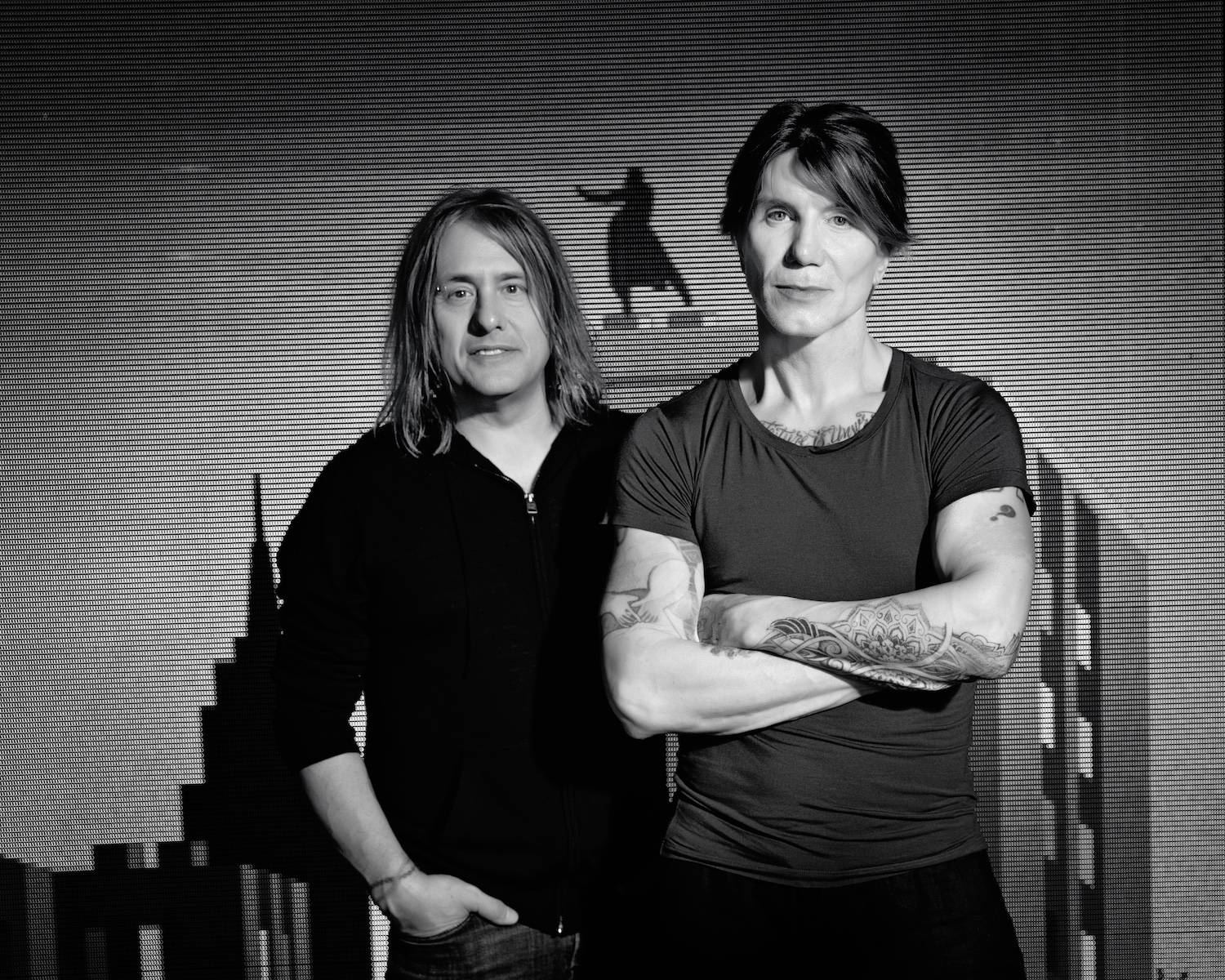
You released your 13th studio album, Chaos and Bloom, just a few years ago. I was a particularly big fan of “Like You,” “War,” and “Going Crazy.” The album as a whole shows that you can be 35 years into your career and still putting out great material. For the uninitiated, what's the story behind that most recent Goo Goo Dolls album?
Robby Takac: That was a COVID record, basically. Like before the vaccine was even talked about, we were setting up to do a record. So we, you know, the pandemic was in full swing, and so we found a studio in the middle of Woodstock, New York, that was in an old church that we could just sort of sequester our gang in, which we did. And yeah, spent a couple months there, man, just recording songs. And there’s still a bunch of songs that we kind of started there that didn’t make it to that record, actually. There’s maybe another four or five songs that were in the works and kind of never got to the finish line, but, and that doesn’t happen much for us, quite honestly. But, yeah, I mean, it was cool. You know, I think there was a lot of time to experiment and kind of get lost in the songs. And I’m not sure how great that is.
Like, I think, you can lose the plots a little bit sometimes, but I think it was a… No, I think it was a… Yeah, I think it was a great way for us to do an album at that time, because I don’t know how else we would have done it. Like, you couldn’t really travel anywhere, you know, so we just sequestered there and then John spent a little bit of time after that in New York and I went out and recorded a little bit out there with them, too, and kind of tightened some stuff up and, yeah, and then we put the record out and it’s… Yeah, I don’t know, man, it’s so hard to tell these days. Like, are people listening? Are people paying attention? We don’t know. We think so, like they’re singing the songs with us but it’s such a crazy world out there right now, you know?
It really is. But music is what gets us through even the hardest times. That was as true in the '60s and '70s, as it was in the '90s, as it is today.
Robby Takac: Yeah, no, positively.
Was that Dreamland Studios, by any chance?
Robby Takac: It was, yeah.
There's something about that area, up in Woodstock.
Robby Takac: It’s really cool. That studio, it’s fun. It’s rustic there, you know, and we lived in like a house which was the old rectory for the church. It was like down at the bottom of the hill. And we had, like, a lot of roommates, like in the walls and in the attic and it was an interesting couple of months. I think John stopped staying there and went and stayed at a hotel after about a week. But it was cool, though, being in the middle of the woods. One day I came out, there was like a hawk eating like a rabbit in front of the front door. Like, I’m a city kid, man, you know? I don’t know about hawks. I don’t know nothing about no hawks eating rabbits.
I am so thrilled that all these years in, you guys are still selling out these international world tours, bringing the music from little bands way up in Buffalo, New York, to audiences all over the world.
Robby Takac: It’s fun, man.
How are you guys preparing for this particular tour, and are there any stops or cities you're most looking forward to hitting this time around?
Robby Takac: I’m just looking forward to doing the whole thing. It had been so long since we had been to Australia last, and we came with Matchbox and we played 45 minutes, so it was like, you know, for a band like us that has been together for this long, you know, to try to play for 45 minutes, it’s just crazy.
You know, with the eight feet of stage they gave us, it was even tougher, so. I’m not complaining or anything, I’m just saying. ‘m just kidding. My point being is it’ll be great to come there and do our show, and play a lot of songs for people, get to go a little bit deeper into the catalog and not just go out and play 12 songs people know and get out of there before you get fined for playing too long.
Talk deeper into the catalog, what are some songs or what's one or two songs you're really excited to kind of dig up and give some new life?
Robby Takac: We’re talking about putting “We Are the Normal” back in, we were talking about “Ain’t that Unusual,” we talked about “Feel the Silence,” we talked about, yeah, like, just some stuff that’s a little off brand. “War” was another one we talked about that has… That was in the set for a while. I think we played… We think we may have played that last time we were in Australia, actually. I think we might have played that in the set, yeah, but, yeah, we’re looking forward to it, though. Like, you know, I think… I don’t think there’s… I can say there’s one city I’m looking forward to. I’m just sort of looking forward to bringing the show to the whole place. Obviously, you know, Sydney is amazing. You know, it’s just a great city in general, you know, so you always look forward to that night. But I think just in general, just kind of making our way around and we have some good friends there too, so it’ll be nice to see folks.
Are you planning to try to take some time on either end to actually just enjoy Australia for what it is?
Robby Takac: We’ll be there a little earlier. We’re doing a couple of rehearsal days there, so we’ll be there a little earlier. But it’s, as glamorous as this life is, we don’t really see too much. I mean, we do make our way around a little bit, but I wish we could see more. You know, the problem is, is that we just keep working. So we sort of end up in a situation where we’re rushing to do the next thing or rushing to get back home to spend a week with our kids so we can get back out again and keep doing it, so.
Yeah. Have you ever visited a city where you've been like, ‘I gotta go back here,’ and then you've actually taken a trip to that city or to that country?
Robby Takac: Yeah, I mean, Tokyo, for sure. Yeah. But I ended up marrying a girl from Tokyo. So we go there quite often, actually.
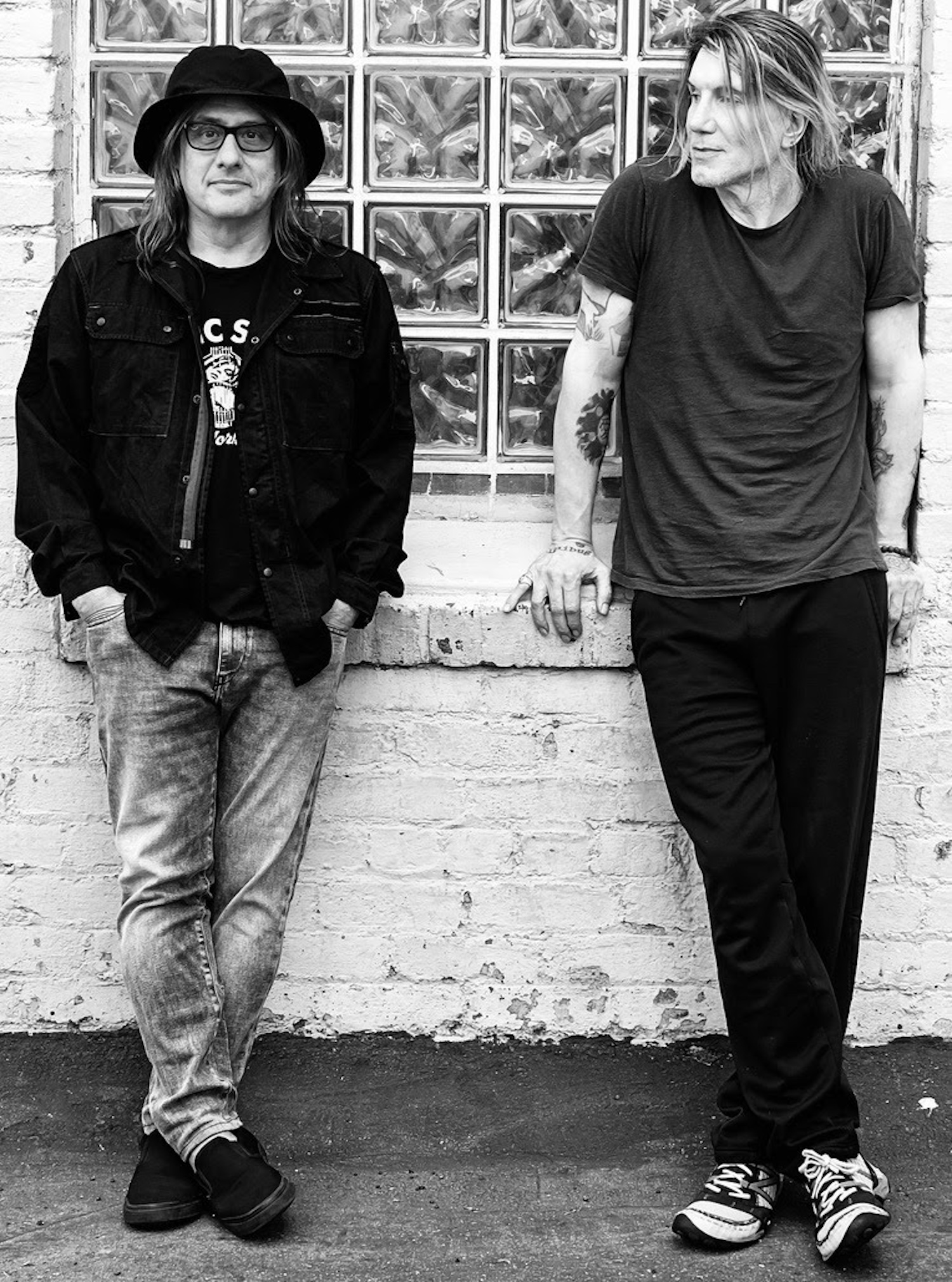
Earlier you said you're working on new music, presumably for Goo Goo Dolls’ 15th studio album? What can fans look forward to next from Goo Goo Dolls?
Robby Takac: Just the next step, man. You know, it’s the next thing. We’re putting some chords together again and singing some melodies and just making it happen again. I don’t know, man. It’s like, I don’t think we ever really walk into a record going, this is what this record’s going to be. I think we sort of walk into a record, start making the record, and it sort of shows us what it is and, yeah, and then we can tell people what the record’s going to be, and pretend we planned it the whole time.
I think when you’ve been doing this for a while, when you write songs for a while, like, I think if you’re doing it with any honesty, you’re gonna let, without sounding too pompous, you’re going to let the muse take you to where you’re gonna go rather than pick a destination and force yourself to get there. Like, I think you just sort of let… I made light of it before, but it’s exactly what I said, come up with a couple chords, sing a melody over the top and see where that takes you.
You're still in Buffalo. I know that you're deeply embedded in the music scene there. Are there any new or newer bands on your radar, whether they're from Buffalo or from New York in general?
Robby Takac: You know, the Buffalo Bills are a pretty big deal here, or they were actually until they lost recently. But there’s a band called Letter to Elise here that I recorded a Killers cover with about three weeks ago, because it’s the, Bills use it here and they’re really pretty great up and coming band here. They were from the ashes of a band called Mom Said No, which was really, really great. Yeah, you know, there’s a lot of great bands that come through this area. You know what is really kind of getting huge here in Buffalo right now is, are you familiar with the Griselda Records people at all? Like, it’s a hip-hop thing. It’s like a Westside Gunn and Benny the Butcher and yeah, that and Conway, Conway the Machine.
And they’ve all sort of got their own record deals and releasing records. So the hip hop scene here, you know, I have a studio here in town and so we see a lot of kind of what comes through. And right now there’s an awful lot of hip hop happening here in Buffalo. And I think it’s because the kids are seeing some dudes from the neighborhood, who aren’t kids but they’re seeing them do well. So the hip hop scene here in Buffalo and the spin off, they call it the Black Soprano Family, they call themselves. Yeah, you hear the Black Soprano Group or something like that. Yeah, they’ve spun off a bunch of artists right now and so it’s pretty fun to watch that happening here, because it really is kind of a thing that’s been going on. So it’s fun to watch.
— —
:: stream/purchase A Boy Named Goo here ::
:: connect with Goo Goo Dolls here ::
— —
— — — —

Connect to Goo Goo Dolls on
Facebook, Twitter, Instagram
Discover new music on Atwood Magazine
© Maxine Evans
:: Stream Goo Goo Dolls ::

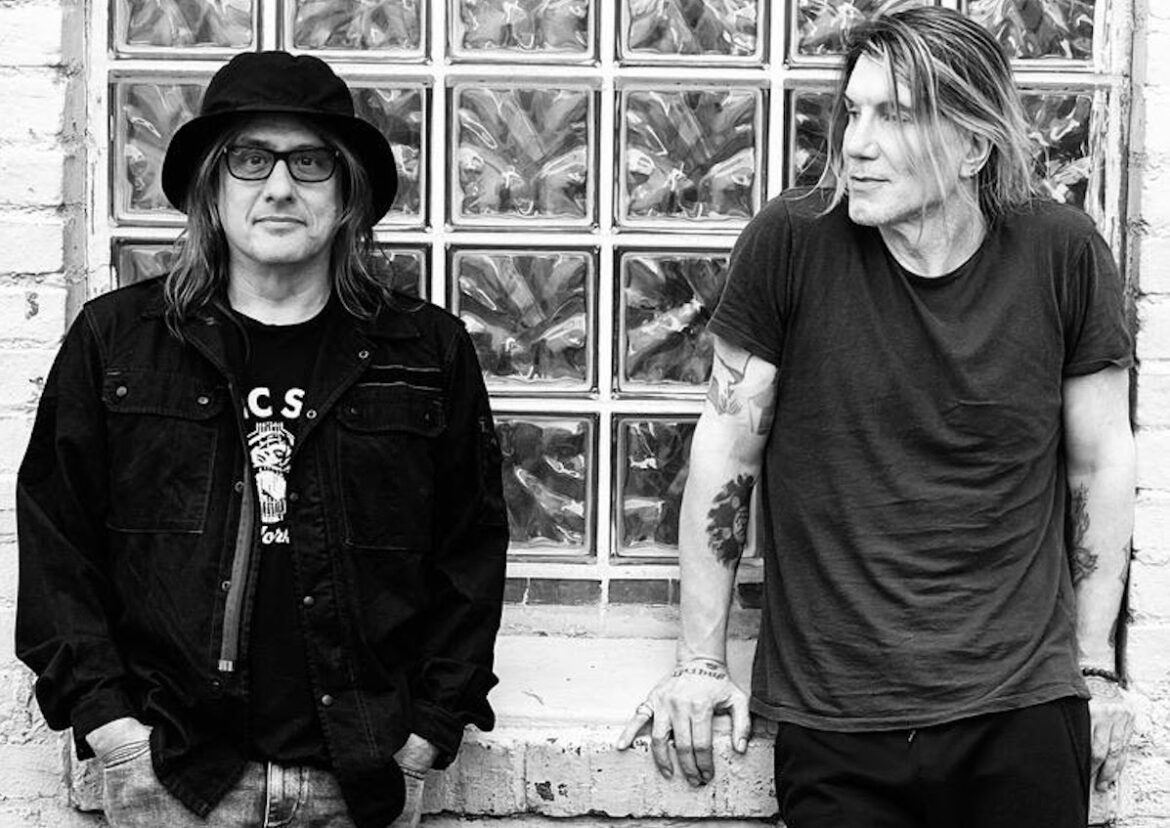
 © Maxine Evans
© Maxine Evans